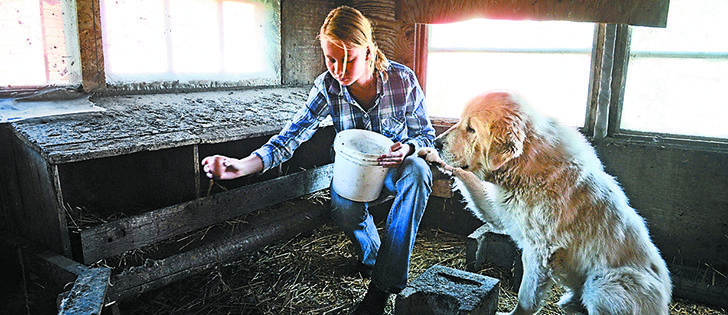LANGENBURG, Sask. —The Rindisbacher family feels at home on their organic grain farm in eastern Saskatchewan.
Originally from Switzerland, Nick and Barbara immigrated to Canada in 1999. They both grew up on dairy farms, but there wasn’t enough income there to farm, and land was expensive.
The young couple had their sights on Western Canada.
“This for us was real Canada,” Barbara said. “Wide open prairies with the wheat fields. That in our view was Canada.”
They first arrived as agricultural exchange students and spent most of 1997 working on a dairy farm in Sask-atchewan.
Read Also

End-of-summer harvest is truly a time for the senses
It is a great time of year to savour the fresh flavours of summer fruits, vegetables and herbs that are being harvested from our gardens.
“First we thought we would come and milk cows, but the longer we were here we realized we didn’t have the money and as a family we’re working 24-7,” said Barbara.
They dreamed of owning a small farm to raise their crops, some animals and a family. The family includes their children, Raphael, 16, and Nicole, 13.
Expired work visas forced them to return to Switzerland and apply for Canadian residency. They were ex-pecting the process to take years, but it was resolved in three months.
“We had it so quickly, we knew that’s the way God wants us to go,” Barbara said.
“If he brought us that far, we knew he was going to be with us further on.”
They placed an ad in The Western Producer in the winter of 1997, said Barbara.
“We had calls, lots of calls. Everyday we had two calls for sure.”
The Rindisbachers soon realized that with financial help from family members in Switzerland, they could make it work.
“In Switzerland, land prices are really high. Even if you come here you think, ‘oh that’s cheap,’ but you never get out of the land as much here as you get over there. You have to realize, don’t compare the prices with Switzerland,” said Barbara.
Nick said it was a steep learning curve when they relocated in 1999, despite a strong background in agriculture mechanics.
“It was like the mouse who swims in the milk. Keep on swimming. Eventually it gets creamy,” said Barbara.
“You make butter and you can step out,” added Nick.
It soon became clear to them that they didn’t want to become a large operation.
“We want to make it a size that we could do it ourselves,” said Barbara.
They farmed conventionally for the first 10 years and Nick said he was one of the first in his area to adapt zero till.
However, growing grain the conventional way never felt right to him.
“It was kind of like baking a ready mix cake. You buy your ingredients and mix it. If you had a problem out on the land, you would go buy your stuff and add it on.… But we just lost interest in doing that,” he said.
“I couldn’t sleep, basically, at night. We weren’t big, but still we had, for our farm, a substantial amount of money out there.”
In the fall of 2008, one of their conventionally grown flax crops received a heavy rain, stirring up the dirt and weeds. Nick said even after spraying, the weeds kept growing.
Soon after, Nick met an established organic farmer in their area.
“His crops were really nice and good looking,” he said.
That launched their journey into growing organic barley, wheat and oats.
“I was always kind of afraid to make that step back home, but then I saw it here and thought what can you lose, basically,” Nick said.
Added Barbara: “The scare was always those three transition years. You don’t have organic prices and you only have half of the crop probably. We knew that we can always go back.”
The couple believes organics have rejuvenated their desire to farm.
“I think I found the passion again in farming,” Nick said.
Friends in the area are also organic farmers.
“We get together once or twice a year and go look to each other’s fields,” Barbara said. “We try to learn from each other.… It’s really nice how we can work together and we know we’re not alone.”

















